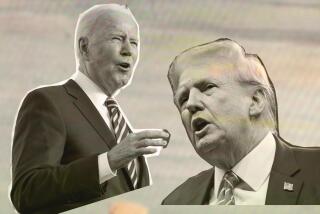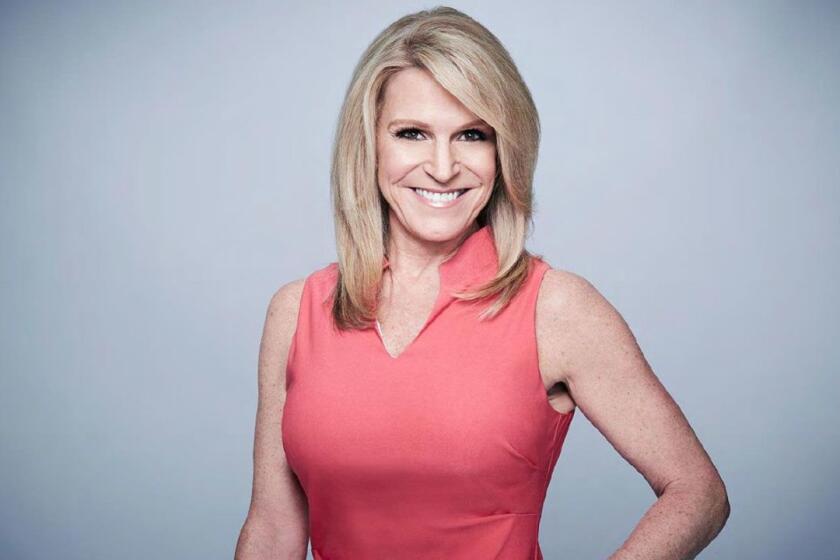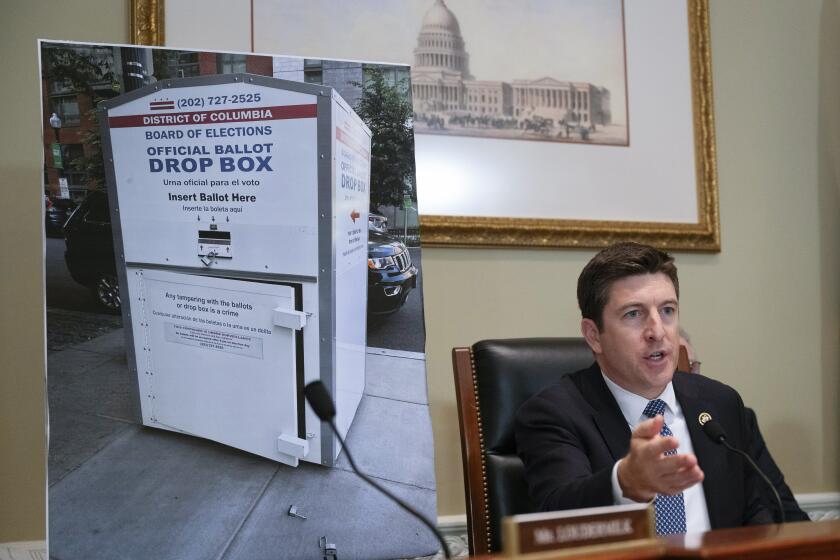Campaign Finance Bill Scaled Back
The chief Senate sponsors of campaign finance legislation decided Wednesday to scale back their bill substantially before sending it to the Senate floor--a sign that they were unable to win enough support to counter an expected filibuster of a more ambitious measure.
Strategists said that Sens. John McCain (R-Ariz.) and Russell D. Feingold (D-Wis.) will introduce new legislation today that bans “soft-money” contributions to political parties. But they will not try to limit “issue ads,” a second often-criticized fund-raising practice.
Although the new, stripped-down version is expected to encounter less resistance in the Senate than their earlier, broader proposal, the sponsors’ decision is certain to disappoint some proponents of sweeping campaign finance reform.
The House passed bipartisan legislation Tuesday aimed at reining in both practices and backers had hoped that the step might provide enough momentum to increase support for the more comprehensive McCain-Feingold bill, which is similar to the House measure.
But strategists said that the two senators, after a month of conferring with Senate Republicans, had concluded that they would be unable to obtain more than 52 votes for their broader bill and thus would not be able to break an expected GOP filibuster. Sixty votes are needed to end debate and bring legislation to a vote.
Aides to the two lawmakers portrayed the scaling-back as a tactical move, asserting that the two still want to pass broader legislation but had concluded that it is better to start out with a bill that has some prospect of passage.
One strategist said that the two hope to use the narrower bill as a “base” bill and seek to build a coalition that might succeed in expanding the measure on the floor of the chamber. The Senate also could come under pressure in a House-Senate conference committee.
The “soft money” issue is one of the most often-criticized practices in political fund-raising. Current law permits corporations, unions and wealthy individuals to contribute large sums of money to political parties for “party building” activities without regulation. Direct donations to candidates, “hard money,” are subject to strict limits.
The senators’ new bill also contains a sweetener for conservatives, a provision that would write into law a 1988 U.S. Supreme Court decision that held that nonunion workers who are required to pay union dues can deduct the portion that is used for political purposes.
But the measure would drop an earlier provision designed to tackle a second abuse: the use of “issue ads” that avoid regulation because they do not directly urge voters to elect or defeat candidates. Ordinary campaign ads are subject to strict rules.
Both senators were cautiously optimistic about prospects for broadening the bill when it comes to the floor.
McCain said in an interview that the two had realized “we couldn’t get to 60 votes just by reintroducing the old McCain-Feingold [bill]. I realize it’s an uphill fight, [but] it’s the best shot we have.”
Feingold outlined a similar strategy. “The really important thing is what happens on the floor. We’re hoping that the more senators have invested in the outcome [by pushing through amendments of their own], the greater the chance that the bill can be expanded.”
The decision by the two senators underscores the sharp differences between the House and Senate on the delicate campaign finance reform issue. The House initially passed broader legislation in August 1998, but the Senate filibustered it to death.
On Tuesday, the House passed a bill containing the same major provisions again, 252 to 177--a somewhat larger show of support than the 237 to 186 vote 13 months ago. But the new House bill--identical to the original McCain-Feingold measure--again faces a filibuster in the Senate.
Pressed by campaign finance reform proponents, Senate Majority Leader Trent Lott (R-Miss.) last month gave McCain and Feingold until mid-September to decide whether to revise their bill, with plans to bring it to the floor for a vote in mid-October.
More to Read
Get the L.A. Times Politics newsletter
Deeply reported insights into legislation, politics and policy from Sacramento, Washington and beyond. In your inbox three times per week.
You may occasionally receive promotional content from the Los Angeles Times.






